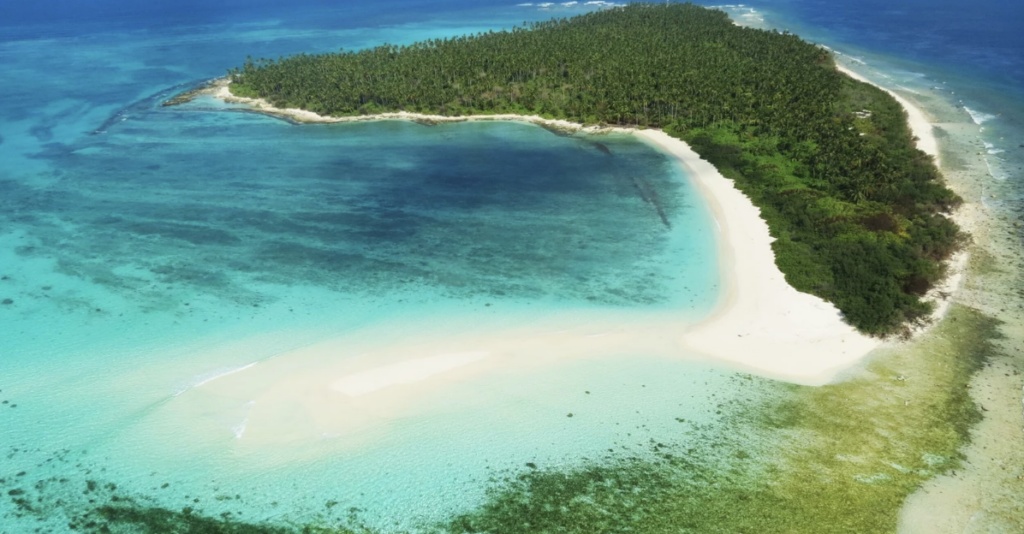Lakshadweep, a mesmerizing archipelago nestled in the heart of the Arabian Sea, starts with an invitation to explore a world of unparalleled beauty and tranquility. Comprising 36 pristine coral islands, Lakshadweep is a hidden gem off the southwestern coast of India, where azure lagoons, coral reefs, and ivory-white beaches converge to create a tropical paradise.
The name “Lakshadweep” translates to “a hundred thousand islands” in Sanskrit, offering a mere glimpse into the vast expanse of natural wonders that await eager travelers. This enchanting destination, often overlooked in favor of its more famous counterparts, unfolds as an idyllic alternative to the Maldives, showcasing its own unique charm, cultural richness, and commitment to sustainable tourism. Embark on a journey to Lakshadweep, where every moment is a celebration of nature’s splendor and the spirit of untouched serenity.

Table of Contents
Lakshadweep – the Indian Paradise
When we think of idyllic tropical getaways, the Maldives often comes to mind with its overwater bungalows, crystal-clear waters, and vibrant coral reefs. However, there’s a hidden gem in the Indian Ocean that is equally enchanting and deserves its time in the spotlight – the archipelago of Lakshadweep. Nestled off the southwestern coast of India, Lakshadweep is a pristine paradise that rivals the Maldives in beauty, biodiversity, and cultural richness. Let’s explore why Lakshadweep stands as a compelling alternative to the Maldives.

Natural Beauty:
Lakshadweep boasts stunning landscapes that can easily compete with the Maldives’ renowned beauty. The archipelago comprises 36 islands, each surrounded by turquoise lagoons, coral reefs, and palm-fringed beaches. The coral atolls and diverse marine life make Lakshadweep a haven for snorkelers and scuba divers. The underwater world is teeming with colorful coral formations, exotic fish species, and even the occasional sea turtle or manta ray.
Untouched Tranquility:
Compared to the bustling tourism in the Maldives, Lakshadweep offers a more serene and secluded atmosphere. With limited tourist footfall, many of the islands remain untouched by mass tourism, allowing visitors to experience the true essence of a tranquil tropical paradise. The white sandy beaches, swaying coconut palms, and the gentle sound of the waves create a serene ambiance that’s perfect for those seeking a peaceful escape.
Cultural Richness:
Lakshadweep is not just a visual delight; it is also rich in cultural heritage. The islands are inhabited by a unique blend of people, primarily of Malayali and Arab descent. Visitors have the opportunity to explore the local culture, indulge in traditional dance and music performances, and savor authentic Malabar cuisine. The warm hospitality of the locals adds an extra layer of charm to the overall experience.
Sustainable Tourism:
As concerns about environmental sustainability grow, Lakshadweep stands out for its commitment to eco-friendly tourism. The authorities are focused on preserving the delicate ecosystems, and various measures are in place to ensure responsible tourism practices. From waste management initiatives to conservation programs, Lakshadweep is making conscious efforts to protect its natural wonders for future generations.
Accessibility and Affordability:
While the Maldives can be a pricey destination, Lakshadweep offers a more budget-friendly alternative. The archipelago is accessible by air and sea, with regular flights and ships connecting it to the Indian mainland. This accessibility makes it a convenient choice for travelers seeking an exotic escape without breaking the bank.










Conclusion:
Lakshadweep, with its breathtaking beauty, cultural richness, and commitment to sustainable tourism, emerges as a worthy alternative to the Maldives. Whether you’re an avid diver, a nature enthusiast, or simply someone seeking tranquility away from the crowds, Lakshadweep promises an unforgettable tropical experience. As the world discovers the allure of this hidden paradise, Lakshadweep may soon find itself on the top of every traveler’s bucket list.




